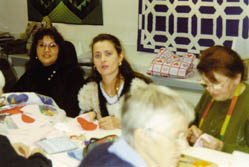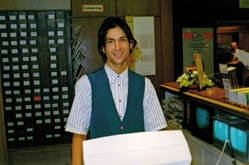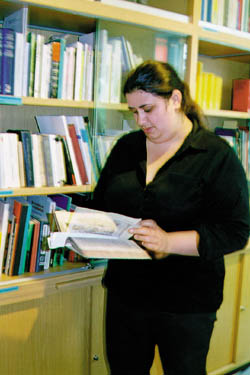|
Kosovo Roma in North
Rhine-Westfalia, for instance,
|
|
|
Since the 1960s, about 8000 Roma from Kosovo have lived in Germany. They were invited into the country as migrant workers. They live here as Yugoslavians or Albanians, like other families of foreign workers. They generally do not show their identity as Roma. They pursue a modern lifestyle and cultivate a middle-class image. They continue to speak Romanes - but only at home; they meet with other Roma families for traditional celebrations like St. George´s Day or Vasilica, for weddings and funerals - but privately. In Kosovo, every celebration happens in the street. But in Germany, they are afraid to lose their jobs, they are afraid of the prying neighbours and of being "found out" to be "gypsies". They are afraid to be associated with this negative image that our media perpetuates in a stubbornly racist way by continuously drawing a picture of a whole ethnic group based on the wrongdoings of a few individuals. However, most children and grandchildren of these migrant workers do not have a problem with their background. They openly admit to being Roma.
|
|
|
|
|


